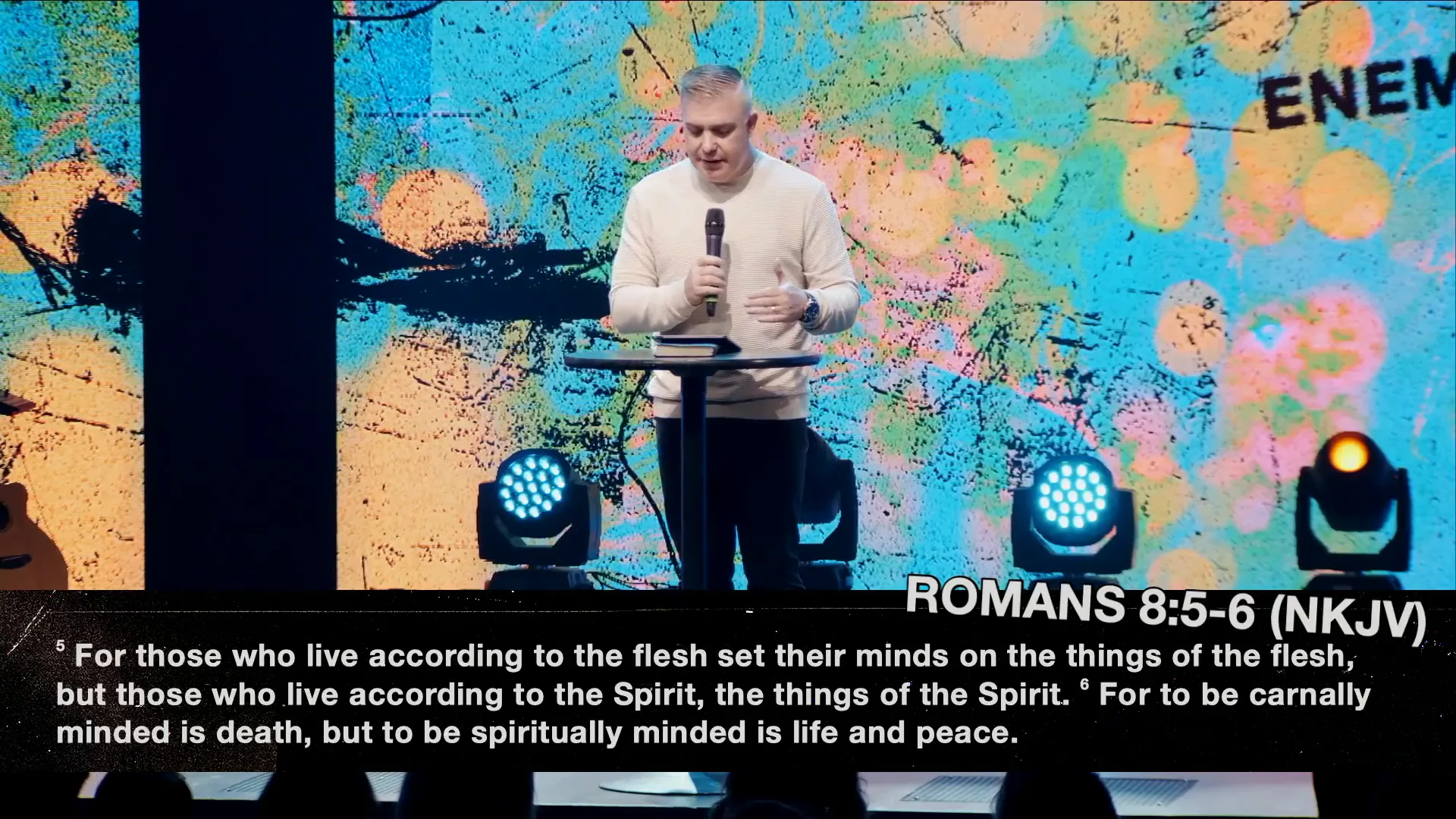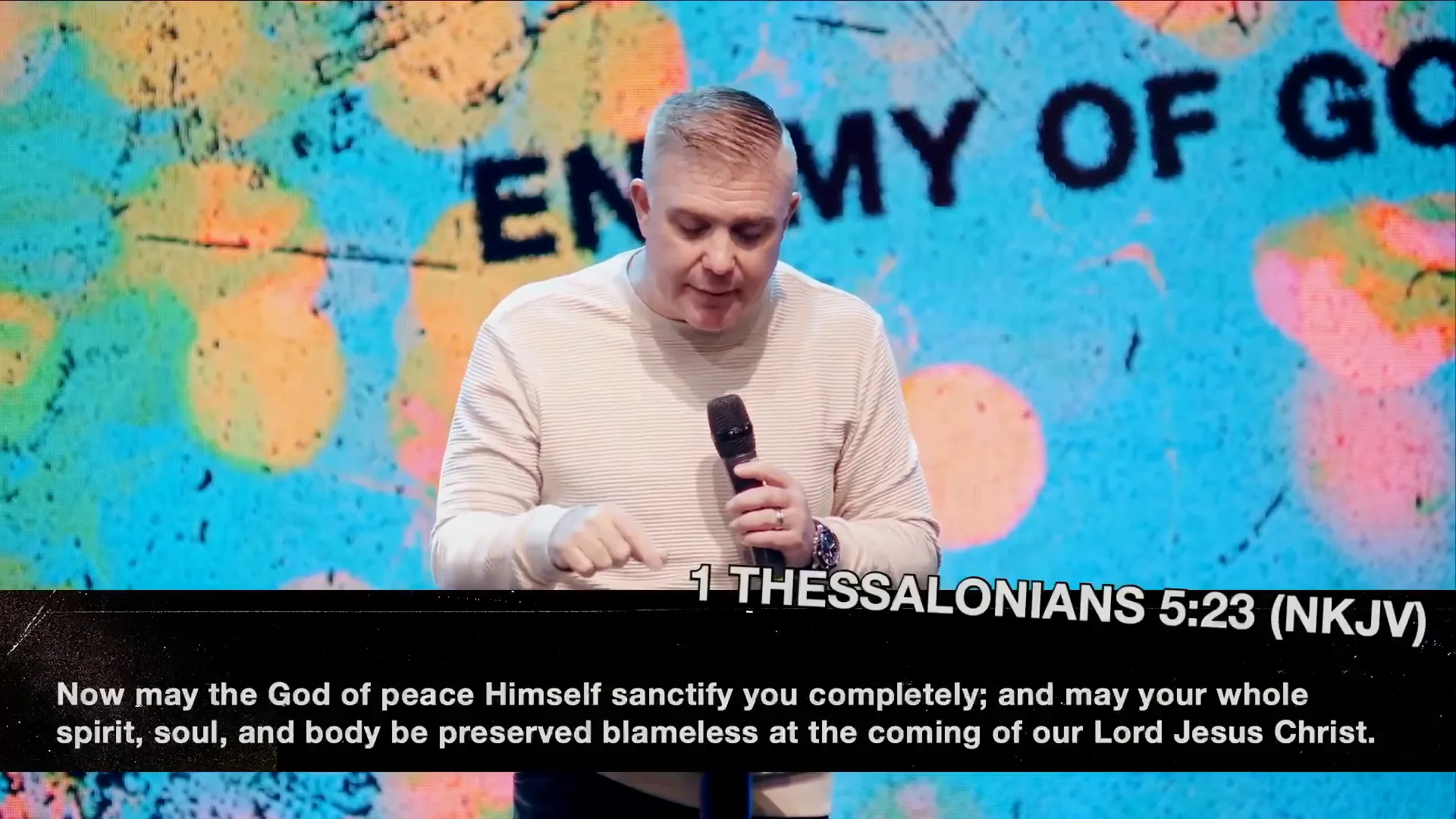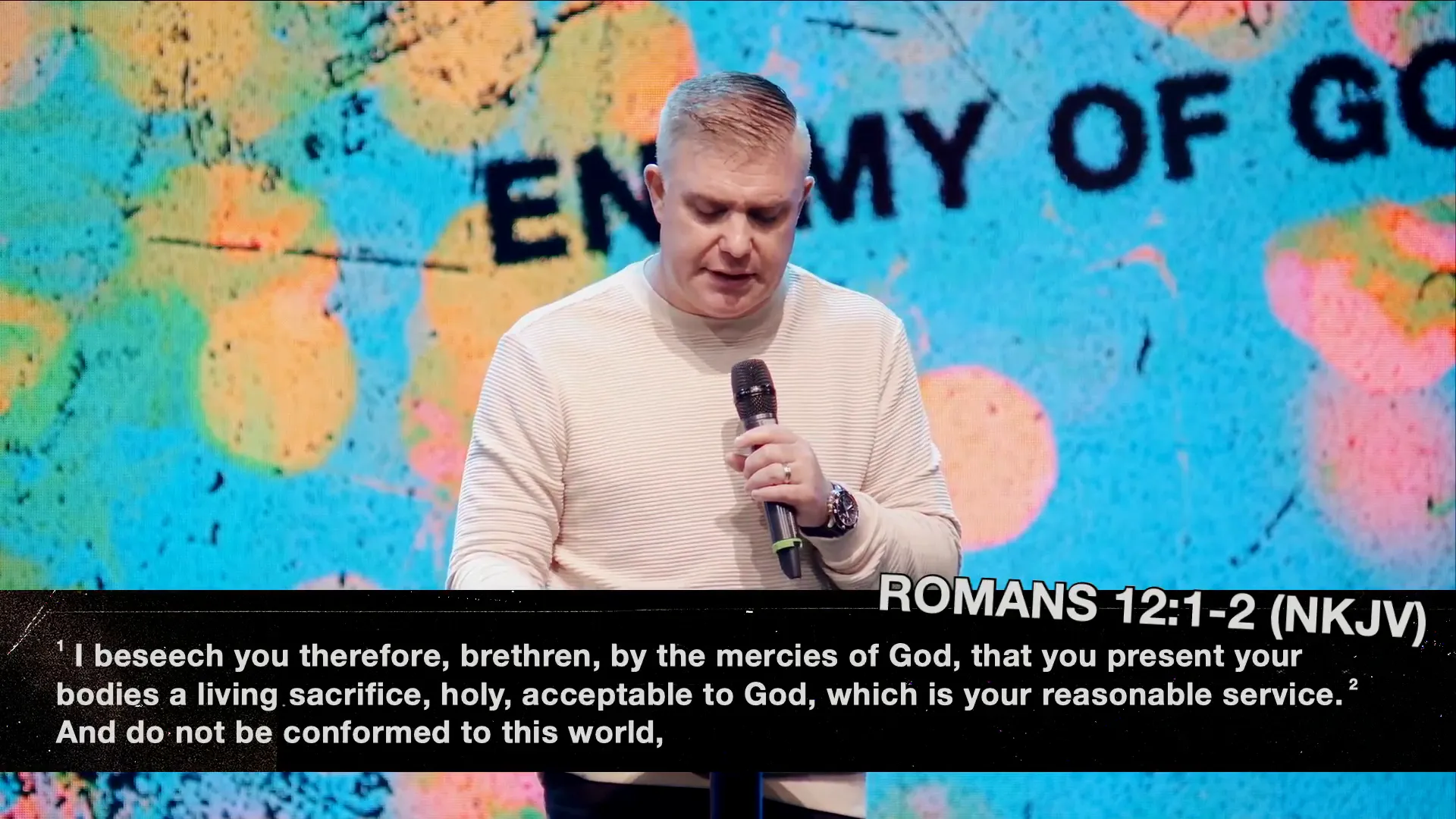Enemy of God | Week 1 | Pastor Ben Pierce
Overcoming the Enemy Within: A Journey to Self-Mastery
In the first week of our series ‘Enemy of God’, we explore the often-overlooked internal battles we face as individuals. This blog delves into the complexities of our emotions, appetites, and spiritual well-being, equipping us with practical insights to gain control over the enemy within.
Introduction to Internal Struggles
Internal struggles are a universal experience, often manifesting as conflicting desires, emotions, and thoughts. They can lead to feelings of frustration, confusion, and even despair. Understanding these struggles is crucial for personal growth and self-mastery. We often find ourselves at odds with our appetites and emotions, which can distract us from our true purpose and identity.

Recognizing the Enemy Within
Recognizing the enemy within requires a deep level of self-awareness. This enemy often takes the form of our own unchecked emotions and desires. We may find ourselves reacting impulsively, allowing anger or frustration to control our actions. It’s essential to identify these moments and understand that they are not merely external challenges but reflections of our internal state.
We can start by asking ourselves critical questions: What triggers these reactions? Are we responding to situations in a way that aligns with our values? By exploring these questions, we can begin to disentangle ourselves from the negative patterns that hold us back.

Understanding Our Appetites and Desires
Our appetites and desires play a significant role in shaping our behavior. They are not inherently bad; in fact, they are part of our human experience. God created us with appetites for food, companionship, and purpose. However, when these desires become excessive or misaligned, they can lead us astray.
For instance, the desire for food is natural, yet when it turns into gluttony, it harms our physical and emotional well-being. Similarly, the desire for relationships can become toxic if it leads to unhealthy dependencies. Recognizing the balance between healthy appetites and destructive desires is key to self-mastery.

The Concept of Carnal Mind
The term ‘carnal mind’ refers to a mindset that is focused on earthly, selfish desires rather than spiritual growth. In Romans 8:5-7, we learn that living according to the flesh leads to death while living according to the Spirit brings life and peace. This distinction is vital in our journey toward overcoming internal struggles.
The carnal mind, or ‘sarks’ in Greek, represents our human nature apart from divine influence. It is crucial to understand that even those who are spiritually awakened can fall prey to this mindset. Recognizing when our thoughts and actions are driven by the carnal mind allows us to redirect our focus toward spiritual truths and divine guidance.
To combat the influence of the carnal mind, we must cultivate a spiritually minded approach. This involves daily practices such as prayer, meditation, and reflection on Scripture. By aligning our thoughts with God’s truth, we can gain control over our appetites and desires, leading to a more fulfilling and purposeful life.
In summary, understanding our internal struggles, recognizing the enemy within, and managing our appetites and desires are essential steps in our journey toward self-mastery. By embracing these concepts, we can navigate the complexities of our emotions and live a life aligned with our true identity and purpose.

The Role of the Spirit, Soul, and Body
Understanding the interconnectedness of our spirit, soul, and body is essential in overcoming internal struggles. Each component plays a unique role in our overall being and influences our actions, thoughts, and emotions.
The spirit is the eternal aspect of our being, designed to connect with God. It is where our true identity lies, free from the worldly influences that can distort our perception. The soul, comprising our mind, will, and emotions, acts as the intermediary between the spirit and the body. It processes our experiences and reactions, shaping our desires and choices.
Finally, the body is the physical vessel through which we navigate the world. It is crucial to maintain a balance among these three components to ensure spiritual growth and self-mastery. When we allow our bodily desires to take precedence over our spiritual needs, we risk becoming disconnected from our true selves.

The Process of Sanctification
Sanctification is the transformative process through which we become more aligned with God’s purpose. It involves setting ourselves apart for a holy purpose, allowing God to cleanse and renew us. This journey is not instantaneous; it requires continuous effort and commitment.
The first step in sanctification is recognising our need for change. We must acknowledge the areas in our lives where we have allowed the carnal mind to dominate. This awareness is vital for initiating the transformation process.
As outlined in 1 Thessalonians 5:23, we must invite God to sanctify our entire being—spirit, soul, and body. This holistic approach ensures that every aspect of our identity is aligned with Him. The more we engage with God’s Word and allow it to penetrate our hearts, the more we will experience true transformation.

Renewing the Mind
Renewing the mind is critical to overcoming the enemy within. Romans 12:2 reminds us not to conform to the patterns of this world but to be transformed by the renewing of our minds. This renewal involves actively engaging with Scripture and allowing it to reshape our thoughts and beliefs.
To begin this process, we must identify the negative thought patterns that have taken root in our minds. External sources, including media, relationships, and societal expectations can often influence these. Once identified, we must consciously replace these thoughts with the truth found in God’s Word.
Practical steps include daily meditation on Scripture, prayer, and surrounding ourselves with supportive community members who encourage spiritual growth. By consistently renewing our minds, we align ourselves more closely with God’s will and purpose.

Practical Steps to Overcome the Enemy Within
Overcoming the enemy within requires intentional action. Here are some practical steps to help you navigate this journey:
- Identify Strongholds: Recognise the specific areas where the enemy has taken root in your mind. This could be negative self-talk, unhealthy relationships, or destructive habits.
- Engage with Scripture: Immerse yourself in the Word of God. Find verses that speak to your struggles and commit them to memory. This will provide you with a powerful tool to combat negative thoughts.
- Practice Prayer: Establish a regular prayer routine. This connection with God will help you seek His guidance and strength in overcoming challenges.
- Surround Yourself with Support: Find a community of believers who can offer encouragement and accountability. Sharing your struggles with others can provide valuable perspective and support.
- Establish Healthy Boundaries: Be mindful of what you expose yourself to, including media, relationships, and environments. Create boundaries that protect your spirit and soul from negative influences.
- Reflect and Journal: Take time to reflect on your thoughts and feelings. Journaling can help you process your experiences and identify patterns that may need addressing.
Implementing these steps will allow you to begin dismantling the strongholds that have formed within you. Remember, this is a journey that requires patience and perseverance.
